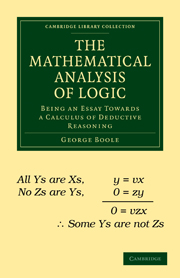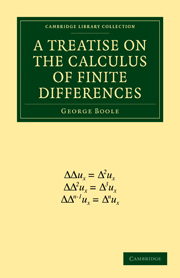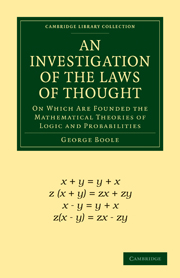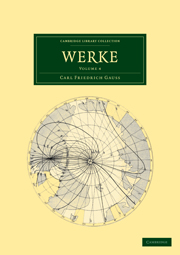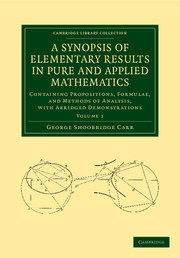The Mathematical Analysis of Logic
Self-taught mathematician George Boole (1815–1864) published a pamphlet in 1847 – The Mathematical Analysis of Logic – that launched him into history as one of the nineteenth century's most original thinkers. In the introduction, Boole closely adheres to two themes: the fundamental unity of all science and the close relationship between logic and mathematics. In the first chapter, he examines first principles of formal logic, and then moves on to Aristotelian syllogism, hypotheticals, and the properties of elective functions. Boole uses this pamphlet to answer a well-known logician of the day, Sir William Hamilton, who believed that only philosophers could study 'the science of real existence', while all mathematicians could do was measure things. In essence, The Mathematical Analysis of Logic humbly chides Hamilton and asks him to rethink his bias. Boole is compelling reading for anyone interested in intellectual history and the science of the mind.
Product details
July 2009Paperback
9781108001014
92 pages
216 × 140 × 6 mm
0.13kg
Available
Table of Contents
- Preface
- 1. Introduction
- 2. First principles
- 3. Of expression and interpretation
- 4. Of the conversion of propositions
- 5. Of syllogisms
- 6. Of hypotheticals
- 7. Properties of elective functions
- 8. Of the solution of elective equations
- 9. Postscript.

